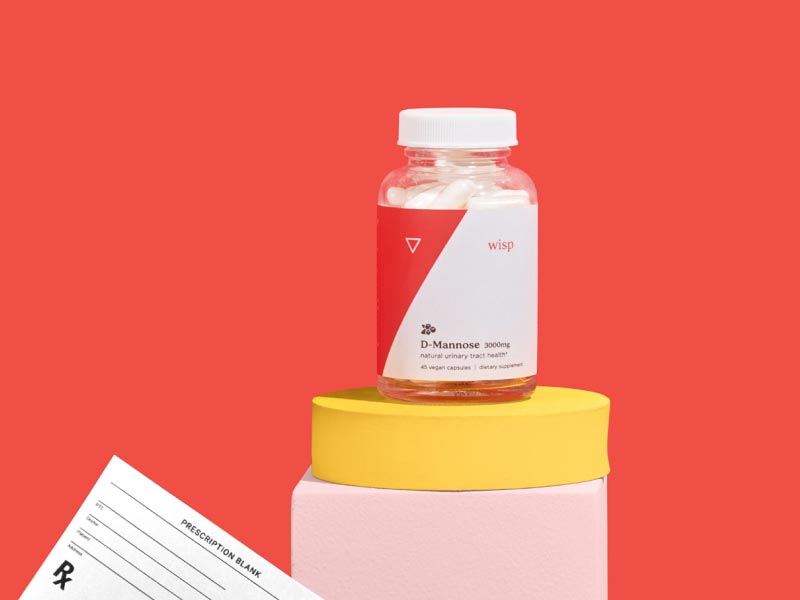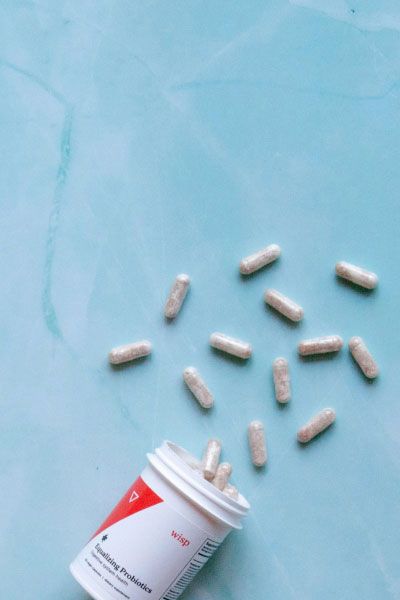
Probiotics and Your
Microbiome: What You
Need to Know
By Dr. Vivek Chander
April 2, 2024
Wisp’s Equalizing Probiotics are our newest venture into the world of holistic health, an approach to healthcare that recognizes the importance of considering your body as a whole, rather than systems that operate separately from each other. Dr. Vivek Chander, Wisp’s Medical Advisor, created Equalizing Probiotics’ custom formula with 9 unique strains of microbes, each chosen for their ability to support a variety of immune functions and help reduce harmful gut health symptoms, vaginal imbalances, inflammation, and more! Read on to learn more about his process and how probiotics can make a difference in your health and wellbeing.
How your gut microbiome can make you sick
My daughter was diagnosed with ulcerative colitis and celiac disease at the age of 16. After doing a deep dive into the literature, I came to understand that a disordered microbiome may have helped activate her disease process, and that probiotics may be able to soothe her symptoms. The research shows that the gut microbiome can play a role in:
- Digestive Disorders: Inflammatory Bowel Disease (Crohn's, ulcerative colitis), Irritable Bowel Syndrome, Celiac disease
- Metabolic Disorders: Obesity, type 2 diabetes, metabolic syndrome
- Autoimmune Diseases: Rheumatoid arthritis, multiple sclerosis, type 1 diabetes
- Mental Health Issues: Depression, anxiety, autism (gut-brain axis)
- Allergic Conditions: Asthma, eczema, food allergies (microbiome immune response)
- Cardiovascular Diseases: Hypertension, atherosclerosis (dysbiosis impact)
- Infectious Diseases: Increased susceptibility (microbiome disruption)
- Skin Conditions: Acne, psoriasis, rosacea (gut-skin connection)
When your gut microbiome is thrown out of balance, beneficial microbes are lost and harmful microbes may be allowed to proliferate. Probiotics can help restore balance to a disordered gut and reduce, or even eliminate, uncomfortable symptoms.
Your gut + your immune system
Your gut doesn’t just digest food and process nutrients—it plays a critical role in your immune system! The gut houses 70% of your immune system, making it a huge player in your overall health. And it makes sense—aside from your skin, your gut is constantly being exposed to the outside world through the food you eat. It needs to be able to defend you from harmful foreign invaders like bacteria, viruses, and parasites. However, the gut’s huge role in your immunity also means that when things go wrong, it can affect many different systems in your body, including your heart, skin, and brain.
Your gut + your brain
You know the saying, “I know it in my gut?” It’s backed by science! The gut is connected to your brain via the “gut-brain axis,” a two-way communication network that links the nervous system of your gut (the enteric nervous system) and your central nervous system. The gut also is a major source of serotonin, the neurotransmitter that acts as your brain’s mood stabilizer. In fact, 95% of the body’s serotonin resides in the gut! The intimate connection between the brain and the gut means that mental health and gut health can have a strong effect on one another. Think about the last time you were sad or nervous—how did your stomach feel? What about the last time you were nauseous—did you start feeling anxious? The next time you have those gut-feelings, you should listen—your brain may be trying to make itself heard.
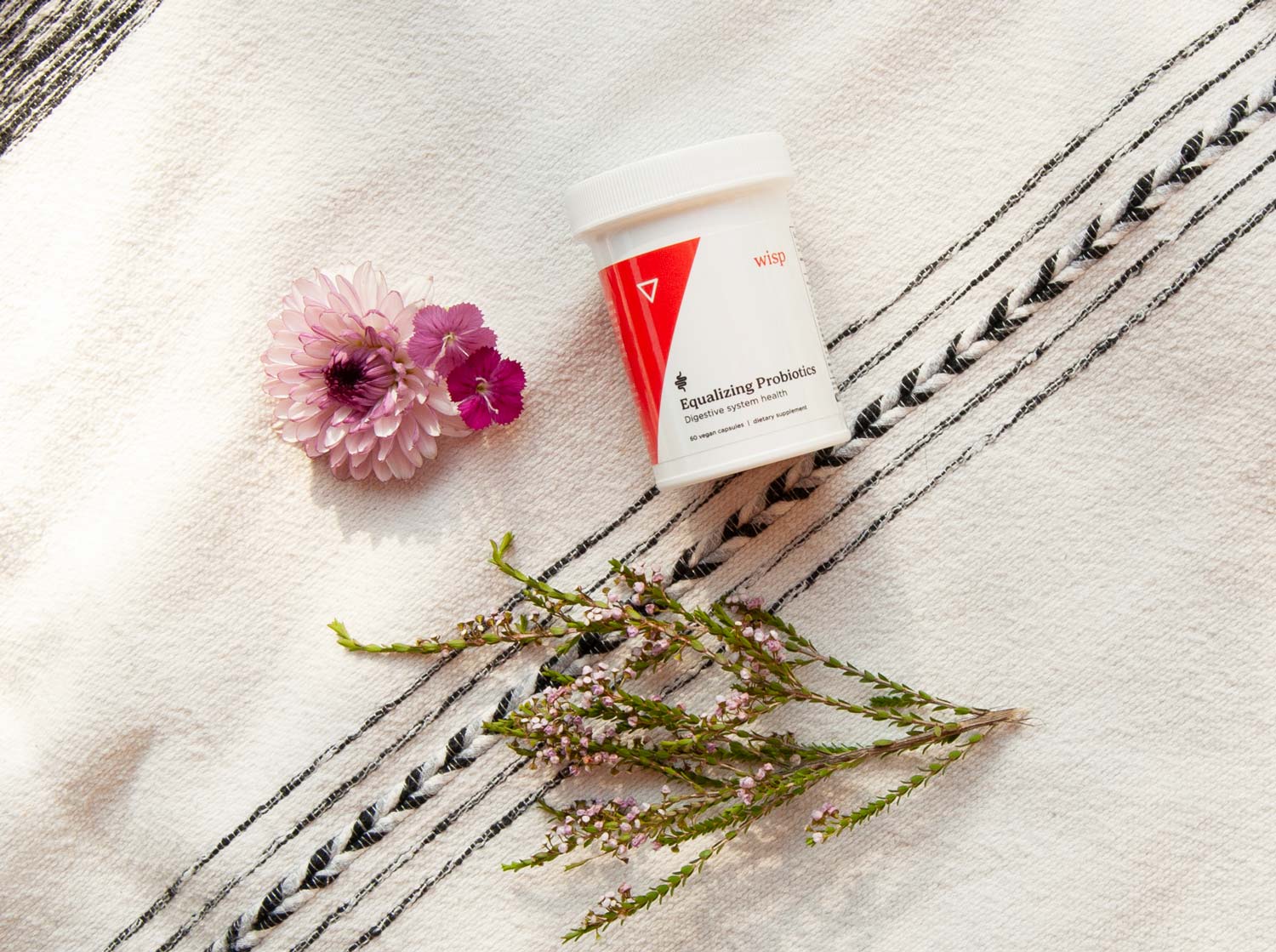
How probiotics can help
Probiotics can help restore balance to your gut microbiome by introducing beneficial strains of microbes that can help combat harmful bacteria, as well as assist your body’s natural immune functions. They may be beneficial for a wide range of individuals, especially those looking to support or improve their gut health and overall well-being. Here are some groups for whom probiotics may be particularly beneficial:
- Individuals with digestive disorders: People suffering from conditions such as irritable bowel syndrome (IBS), inflammatory bowel diseases (IBD) like Crohn's disease and ulcerative colitis may find symptom relief with specific probiotic strains.
- Those taking antibiotics: Antibiotics can disrupt the gut's microbial balance by killing beneficial bacteria. Probiotics can help restore this balance, potentially reducing the risk of antibiotic-associated diarrhea and other gastrointestinal side effects.
- Individuals with certain infections: Probiotics may help prevent or manage infections, including vaginal infections like bacterial vaginosis (BV) and yeast infections, as well as certain respiratory infections.
- People with allergies and eczema: Some studies suggest that probiotics may benefit those with allergic conditions, including eczema (atopic dermatitis), especially when taken during pregnancy and early life.
- Those with metabolic conditions: Individuals with metabolic syndromes, obesity, or type 2 diabetes may experience improvements in metabolic markers and insulin sensitivity with certain probiotic strains.
- Individuals experiencing mental health struggles: Emerging research indicates a connection between the gut microbiome and mental health. Probiotics may have a positive impact on conditions such as depression, anxiety, and stress.
- People seeking to boost immunity: Probiotics may enhance immune function, making the body more resistant to infections and possibly improving the response to vaccinations.
- Elderly Individuals: Aging is associated with changes in the gut microbiome. Probiotics may help improve the microbial balance in elderly individuals, potentially enhancing their digestive and immune health.
- Those looking to improve general wellbeing: Even without specific health conditions, individuals interested in maintaining or enhancing their overall health may benefit from the general supportive effects of probiotics on the gut microbiome and immune system.
The key benefits of Equalizing Probiotics
I selected the following strains to include in our probiotic formula because they are each supported by research to deliver a wide range of digestive, vaginal, and mental health benefits, among others!
Saccharomyces boulardii
- Yeast probiotic, unaffected by antibiotics
- Boosts immune system, aids IBD, promotes IgA production
- Inhibits pathogen growth; survives transit through your GI tract
Lactobacillus rhamnosus CG
- Prevents antibiotic-resistant diarrhea; targets vaginal pathogens
- Contributes to metabolic health; reduces indigestion
Lactobacillus casei Lc-11
- Reduces allergic symptoms; combats C. diff infections
- Effective against antibiotic-associated diarrhea
- Benefits lactose-intolerant individuals
Lactobacillus paracasei Lpc-37
- Enhances mental well-being; supports skin microbiome
- Reduces antibiotic-associated diarrhea
Lactobacillus acidophilus La-14
- Assists lactose intolerance; supports vaginal/digestive health
- Targets causes of BV; decreases BV recurrence
Bifidobacterium lactis Bi-07 & BI-04
- Lowers cholesterol; supports weight management; reduces antibiotic diarrhea
- Improves dairy digestion; supports immune system
Bifidobacterium longum Bb-06
- Exhibits antioxidant properties; reduces oxidative stress
- Reduces stool frequency during antibiotic use
Lactobacillus Reuteri
- Promotes oral health; improves vaginal flora
Beneficial probiotic strains aren’t just found in supplements—you can also gain benefits from incorporating probiotic-rich foods into your diet! The process of fermentation produces beneficial microorganisms for your gut and as a result, you can get probiotics naturally from most fermented foods such as yogurt, kefir, sauerkraut, tempeh, kimchi, miso, and kombucha.
Factors that influence your microbiome
There is huge variety in the types of microbiomes that are present in human beings. Some people seem plagued with digestive issues from birth, while others sail through life eating anything and everything they please! There are a number of factors that contribute to the development of your microbiome from the second you are born and throughout your life.
Mode of Birth: Infants born vaginally are exposed to their mother's vaginal and intestinal microbiota, while those born via cesarean section initially acquire a different set of microbes, often from the skin and hospital environment.
Breastfeeding vs. Formula Feeding: Breastfed infants tend to develop a gut microbiome enriched with beneficial bacteria like Bifidobacteria, partly due to oligosaccharides in breast milk that act as prebiotics. Formula-fed infants may have a more diverse microbiome earlier, which can include different bacterial types.
Diet: One of the most significant influencers, the composition and diversity of the diet can profoundly impact the gut microbiome. High-fiber, plant-based foods promote the growth of beneficial bacteria, while a diet high in processed foods, sugar, and fats can lead to imbalance, also called dysbiosis.
Age: The microbiome changes with age, starting very diverse in early life, stabilizing in adulthood, and becoming less diverse in elderly individuals, which can affect overall health.
Geographical Location: Where a person lives can influence their gut microbiome due to differences in diet, environment, and lifestyle factors. People living in rural, non-Westernized environments tend to have more diverse gut microbiomes compared to those in urban, Westernized settings.
Stress and Emotional Factors: Psychological stress, anxiety, and depression can impact gut motility and secretion, the mucosal immune system, and the microbiome itself.
Physical Activity: Regular exercise has been shown to positively influence the diversity and composition of the gut microbiome.
Sleep and Circadian Rhythms: Disruptions to sleep or circadian rhythms can impact the microbiome, which in turn may affect sleep quality, creating a bidirectional relationship.
Hygiene and Living Conditions: The "hygiene hypothesis" suggests that less exposure to infectious agents, microorganisms, and parasites in early childhood can impact the immune system and microbiome composition, potentially increasing susceptibility to allergies and autoimmune diseases.
Alcohol Consumption: Moderate to heavy alcohol intake can alter the gut microbiome, leading to an imbalance that may contribute to liver disease and other health issues.
Science is just beginning to understand the huge potential of probiotics in benefitting our health and wellbeing. Projects like the Human Microbiome Project are putting in the work to characterize our microbiomes and deepen our knowledge of health and disease by studying the body's microbiome. This kind of research could further transform medicine by exploring how the microbiome influences diseases, immunity, and wellbeing.
Equalizing Probiotics has been carefully formulated using microbial strains that are backed by research to not just be safe and effective, but to really be able to deliver holistic benefits that go beyond digestive health (although it has those too!). We’re proud to be able to bring the science to life and you’re reaping the benefits—your microbiome will thank you.
Get Natural Care
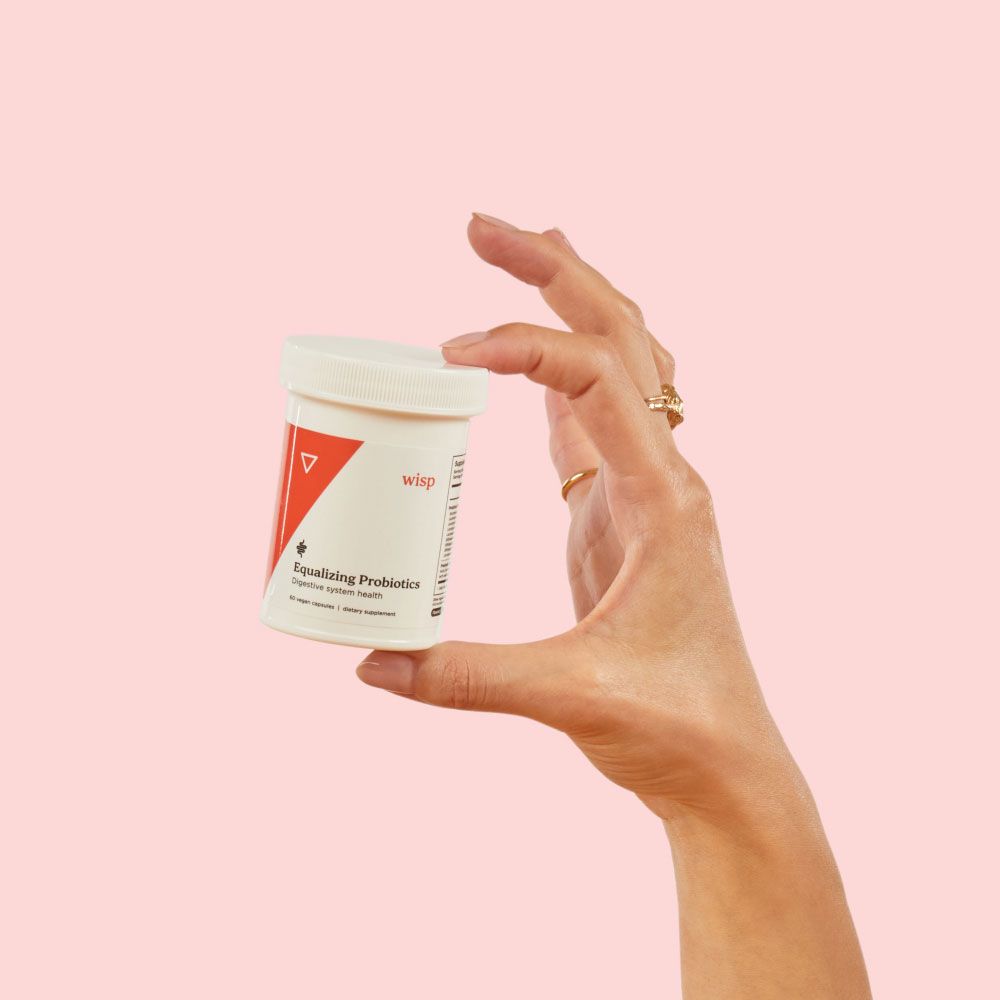
Wisp Equalizing Probiotics
Starting at $18/ month
The Wisp Equalizing Probiotics is a daily supplement that contains 25 billion CFU’s of 9 powerhouse probiotic strains (more “good” bacteria!).
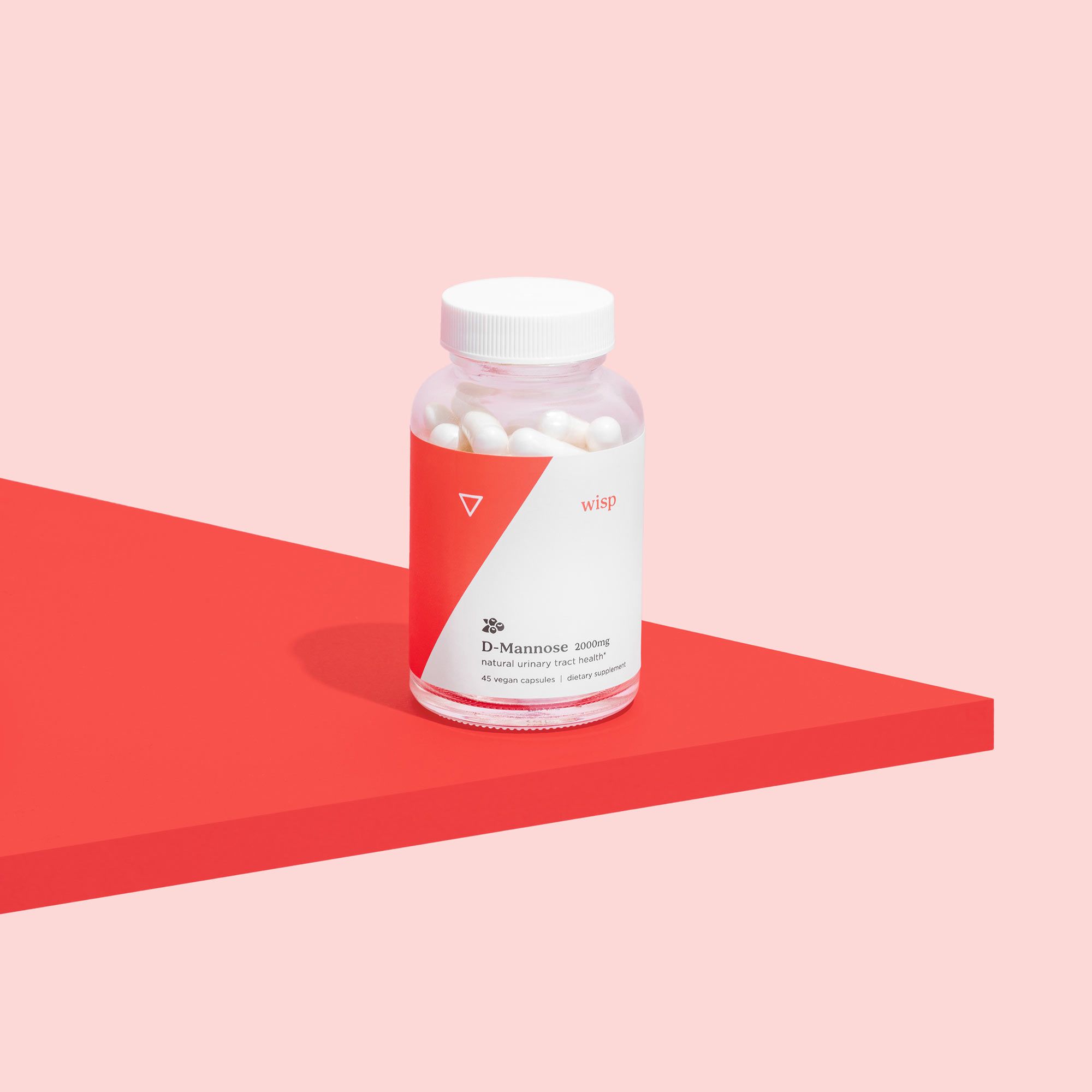
D-Mannose Capsules
Starting at $27
Skip the cranberry juice with D-Mannose capsules to support urinary tract health.
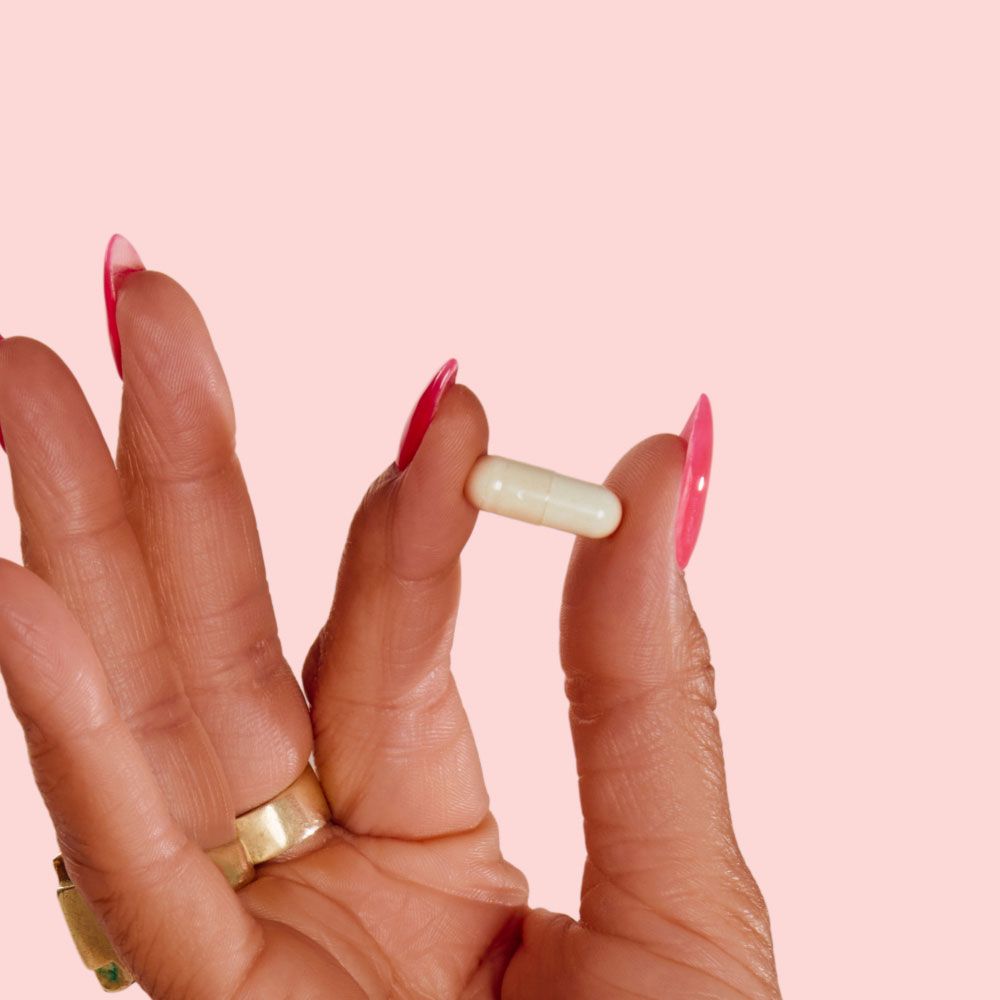
Boric Acid Suppositories
Starting at $27
An over-the-counter vaginal suppository custom-made to help prevent & relieve infections.

